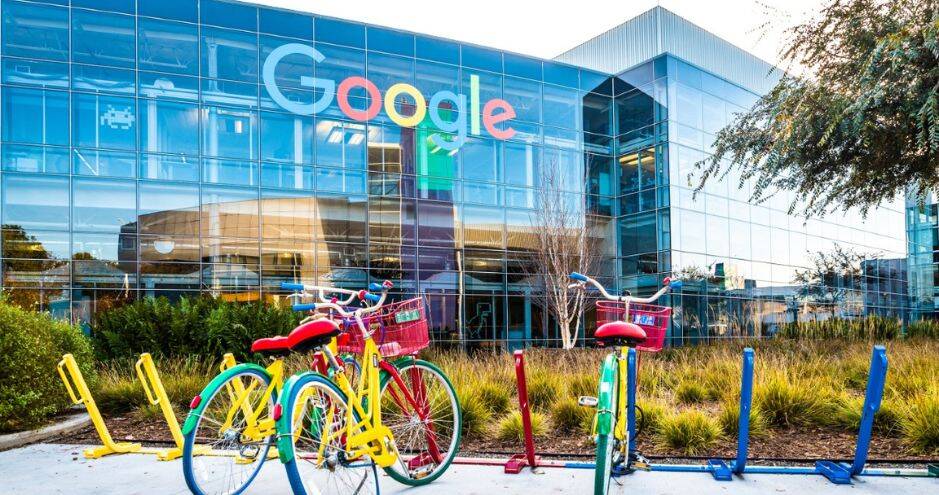3 Tips for Acing the Google Interview
With 3 million applicants yearly and only 0.2% hired, Google boasts one of the world's toughest hiring processes. HEC Paris MBA alumna Claire Howlett-Thorne shares insights from her role. Matching job descriptions is key; analytical skills are honed through case cracking, and understanding Google's mission is vital for cultural fit.

With over 3 million high-quality applicants each year and approximately a 0.2% chance of successfully becoming an employee, Google has one of the most competitive hiring processes in the world. With perks that range from great salaries to gourmet lunches, it’s no surprise that jobs at Google are in such high demand.
What’s the secret to standing out among all those job applicants? That’s the question we asked Business Transformation Lead Claire Howlett-Thorne, MBA ’09, when she was giving the keynote speech at HEC Paris’s annual Digital and Tech Career Fair. “Putting it bluntly, Google is spoiled for candidates,” Claire confirms. “However, we are always looking for the 5-legged sheep. So finding the perfect profile for any given opening is like finding a pin in a haystack. Hence, Google has put in place a stringent process to surface the best candidates.”
She adds that the company’s workforce is rapidly expanding, and even her team has more than tripled in size since she started with the company three years ago. “When I joined Google there were 60 of us, now we are over 200,” she explains. Google’s parent company, Alphabet, topped 100,000 employees in mid-2019, and hiring remains strong, even though it has slowed slightly due to COVID-19.
Here are three insider tips from Claire about how to prep for Google interviews:
Ensure that your experience matches the job description
Spare yourself time, effort and false hopes by applying only to positions that match your experience. As mentioned earlier, we are spoiled for candidates, so we look for people who have already done the job.
Our job descriptions are usually quite clear, with sections on “minimum qualifications” and “preferred qualifications.” If “minimum qualifications” mentions “min 3 years in a business consulting role,” you MUST have 3 years in this role and not 3 years of experience as a whole.
If you are looking for a career switch right away, Google may not be the right choice. However, if you are passionate about our company, you can join a role that matches your experience. Then, after building your network and your track record, you can switch through an internal move.
If you are unsure whether the role matches your profile, ask a friend! Ideally someone who works at Google or within our ecosystem. Alternatively, someone who knows you well and, at the same time, can provide unbiased advice. (So, probably not your mum… ?)
Sharpen your analytical skills
Google is known for its notoriously difficult General Cognitive Ability (GCA) interview, which features questions such as, “Google is considering launching the GShoe, a pair of sneakers expected to redefine the walking experience. If you were driving this initiative, how would you tackle it? ” (No need to prepare this one, it is no longer being used). Overcome this hurdle by practicing case cracking. I regularly cracked cases with the MBA’s Consulting Club when I was studying at HEC. It’s a great activity because of the transferable skills it develops.
When interviewing at Google and facing the GCA, start with the basics. Make sure you understand the problem and its implications. What are we trying to solve? Why does it matter? Then search for additional information or check your assumptions with the interviewer. What business are we referring to? What geography?
Then, and only then, can you start developing your thought process towards a solution. You would be surprised by the number of candidates who jump directly into problem solving without getting the big picture first. To me, that’s a “thank you, next” right away.
One mantra when you enter the GCA interview: Take. Your. Time. Many candidates get nervous and race through their reasoning. The key with GCA is to show that you have a structured thought process and can take a step back. The conclusion doesn’t matter that much, but the reasoning path does. It’s not about the destination, but the journey.
Know the Google mission and core values
Company culture is incredibly important at Google. One of the interviews assesses “Googleyness,” a neologism that captures how a person embodies the company’s values and behaviors. In other words, interviewers assess whether they would enjoy a lunch or beer with you.
Know the company’s mission (For Google, it’s “organize the world’s information and make it universally accessible and useful”). Be ready to explain what it means to you on a personal level, and what actions you have taken in the past to contribute to it. Be also ready to articulate how the company’s mission relates to the job you are applying for.
Working at Google gives you a huge sense of responsibility. It’s an amazing opportunity and, at the same time, it is very humbling. When I was introduced as the keynote speaker today by Jean-Rémi Gratadour, the Executive Director of the HEC Paris IDEA Center, he said, “We have Google here on campus!” I thought, “Wow… that’s a big weight on my shoulders!” When you join Google, you join something bigger than yourself. People who thrive in their jobs are those who leverage their past experiences to ace the basics and then stretch themselves to have 10X the impact.
Being clear on your mission and what value you bring to Google will be extremely useful, not only for your interviews but also to bloom in our environment.
Good luck on your applications!